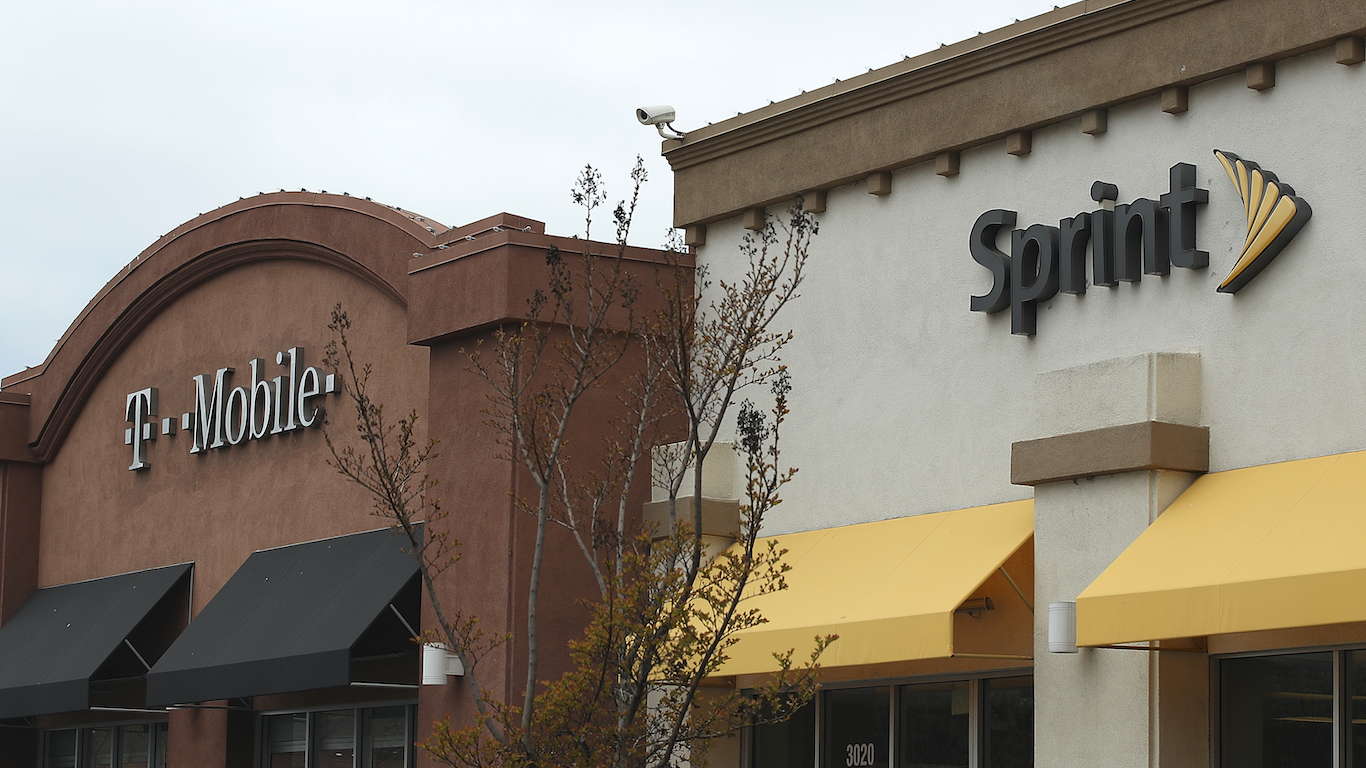Telecom & Wireless
Wireless and Communications Firms Face More Uncertainty in Sprint and T-Mobile Merger Saga

Published:
Last Updated:

The pending acquisition of Sprint Corp. (NYSE: S) by T-Mobile US Inc. (NASDAQ: TMUS) has taken yet another turn. After Monday’s news that the Federal Communications Commission (FCC) chair would recommend approval of this $26 billion deal sent Sprint’s shares soaring to a year-high, there is now word that the U.S. Department of Justice (DOJ) staff is set to block the merger.
While Sprint’s shares traded lower on the news, there has not been a final declaration from either the DOJ or the FCC on the pending merger. Note that prior acquisition efforts to buy Sprint have been blocked on antitrust concerns, with the government effectively taking the stance that the wireless industry is better if consumers have four main choices rather than three.
According to reports from CNBC and Reuters, the DOJ’s antitrust division is recommending that the department file a lawsuit to block T-Mobile’s acquisition of Sprint. Citing “two sources familiar with the matter,” the DOJ is set to announce its final decision in about a month and that the final decision on merger approval now lies with political appointees at the department.
This would be a 180-degree reversal compared to what the investment community thought about the merger just 48 hours earlier. The FCC chair’s report on Monday indicated that an agreement in principle had been reached with Sprint and T-Mobile. Part of their agreement was to rapidly build a 5G network that would cover an overwhelming majority of American consumers, for the companies not to increase prices for three years and for the combined company to sell or divest Sprint’s prepaid Boost Mobile service.
The move from the FCC was seen as a boost for AT&T Inc. (NYSE: T) and Verizon Communications Inc. (NYSE: VZ) as well. To put this into plain terms: it would have meant that there were only three wireless carriers trying to gut their competition rather than four. That also would be at a time when the companies are trying to build out a 5G network and while they integrate other businesses with their tens of millions of wireless communications subscribers.
While the Communications Workers of America union does not have a final say in the Sprint acquisition by T-Mobile, the group immediately voiced concerns that the proposed merger remains anti-competitive, is harmful to American workers and should be blocked. The union’s statement predicted the loss of 30,000 U.S. jobs due to shuttering retail stores and due to consolidating functions at the headquarters level. The union further opined that T-Mobile has made vague and “loophole-ridden pledges” to maintain jobs for current T-Mobile and Sprint employees that would leave 88,000 jobs not covered.
Many downstream companies would face potential increases or decreases in their businesses if there were three major carriers rather than four. While the number of all-in subscribers would not change, the carriers might have more leverage over the companies that make the smartphones and own the cell and communications towers. That might even translate to an impact on companies that make components and software of phones, and it would mean more potential “big hits and bad misses” for the communications and infrastructure companies that supply all the guts that make up the national communications system.
While AT&T and Verizon saw their shares rise on Monday, the communications towers players were all lower on the news. And to prove the point that three main carriers would be worse than four in their underlying businesses, note that shares of Crown Castle International Corp. (NYSE: CCI), American Tower Corp. (NYSE: AMT) and SBAC Communications Corp. (NASDAQ: SBAC) all traded higher on Wednesday after the DOJ report broke. Verizon and AT&T shares were trading lower on Wednesday’s report as well.
This is one of those situations in which there are two sides of the story, and each side has more than a few points of justification to support the why or why not this merger should be allowed. While Sprint has posted positive operating earnings, there has been a long history of losses in net income. Sprint’s balance sheet is also complicated, with more than $43 billion in intangible assets and more than $35 billion in long-term debt outstanding. Sprint’s ownership stake by Softbank is also roughly 85%.
Sprint is the one that obviously has the most to gain and lose in this merger. Its shares were last seen down more than 5% at $6.83 on Wednesday morning, in a 52-week range of $5.09 to $7.90. Sprint’s share price was up almost 19% with a $7.34 closing price after Monday’s FCC announcement, and the trading volume was a whopping 166 million shares.
Thank you for reading! Have some feedback for us?
Contact the 24/7 Wall St. editorial team.